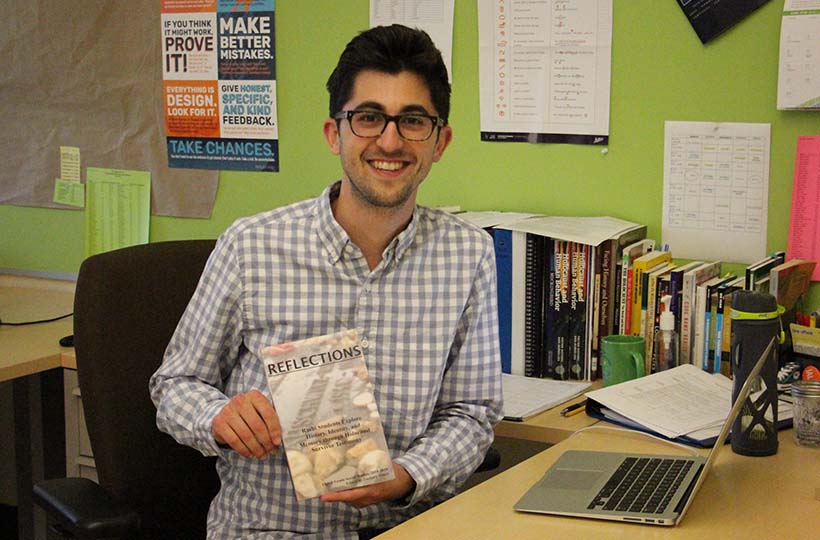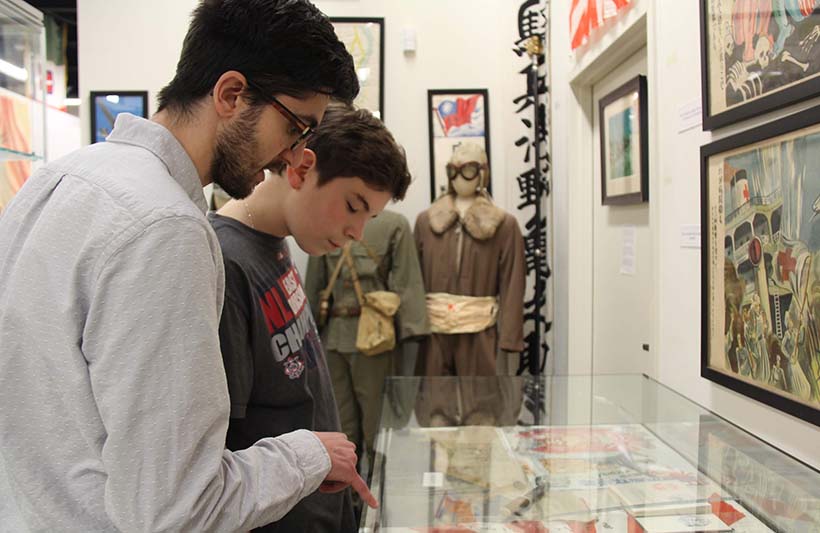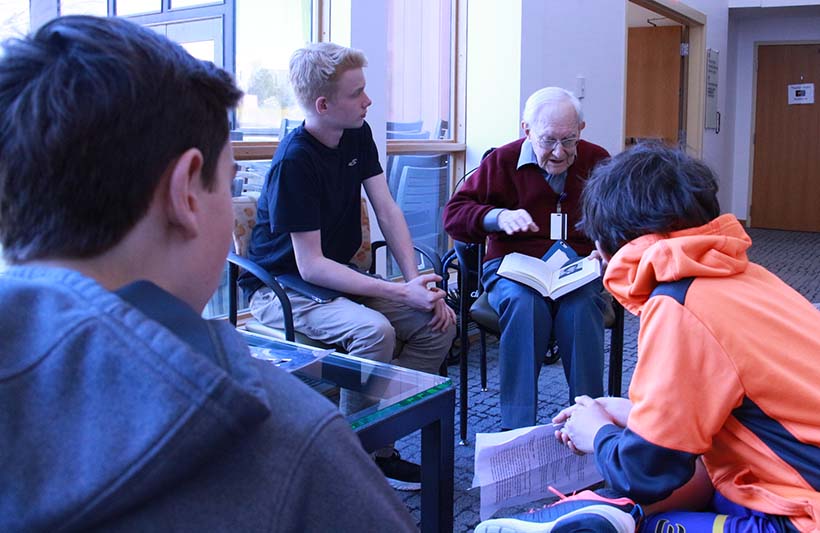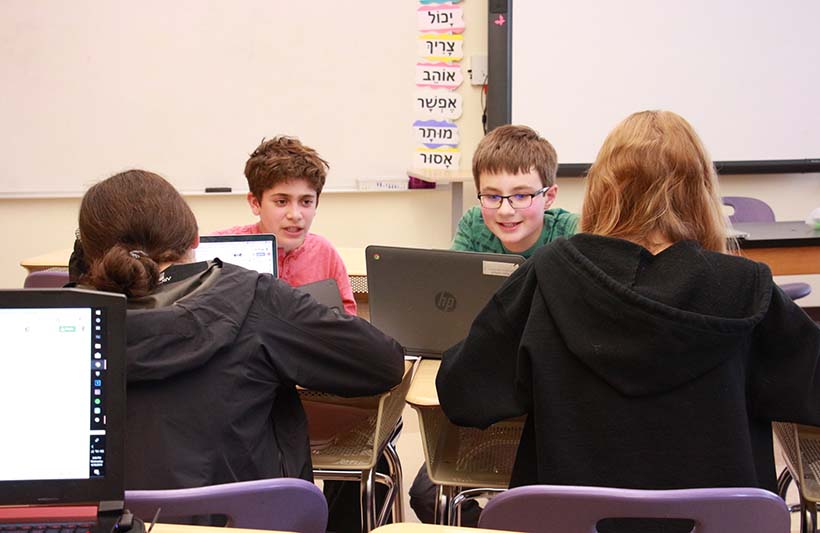by Zachary Albert, Middle School Social Studies Teacher at The Rashi School
As time passes we move further and further from the events of the Shoah, and soon its last living witnesses will no longer be with us. We must ensure that their stories are preserved and understood for the generations that come after us.

At The Rashi School, students in my eighth grade history course have made this their mission. During our year together we examined the origins, nature, and impact of the Second World War and the Shoah. We analyzed historical documents and artifacts and explored museums, memoirs, poetry, and art. Our classroom became a space for inquiry and group discussion as we worked together to reflect on historical events with a keen awareness of the subject’s complexity.

A central component to our study was Holocaust survivor testimony. The survivors that we learned from via text, image, video, and in-person interviews provided us with the basis for understanding historical memory and the construction of Holocaust narratives. It was through these records of ultimate pain and deep despair that our class deepened our understanding of the horrors of genocide. We discussed moments of dehumanization, loss of faith, and hope and hopelessness. We read stories of tragedy and trauma, the breaking of familial bonds, what it takes to survive, and what it means to “bear witness.” In class, we spoke about the uniqueness and universality of the Holocaust and its survivor testimonies. Moreover, we focused on the importance of documentation and understanding that a story is not the story.
We studied proper interview techniques, devised interview questions, and arrived to our interviews with a professional and focused mindset: our job is to listen. And by truly listening, we would honor their stories, their families, and their trauma.

Generally speaking, I teach my classes that education is an opportunity to learn more about yourself, how you see the world, and how you want to be in the world – to figure out your passions and to understand the importance of thinking critically in your life. But, studying the Holocaust adds something more: it is an act of memorialization. It is remembrance. To paraphrase an often-quoted saying, ‘we die two deaths: when we take our last breath and when our names are uttered for the last time.’ By studying this history, we never have to utter a name for the last time; we prolong the survivors’ legacies and keep the memory of its victims living within us in the hope that something like the Holocaust never happens again. The lessons that can be learned from this history – the complexities, the choiceless choices, and the stories of inspiration and hope – require a commitment to thoughtful discussions and thoughtful actions. I honor the opportunity to get to do this important, human work with my students.

The reflections found within these pages offer a snapshot in these students’ thinking of complicated and difficult topics. At their essence these are personal reflections: quiet contemplations in a journal, impassioned and critical conversations in a classroom, and deliberate examinations on what it means to be a Jew in a post-Holocaust world. These students are of the last generation to be able to say, “I met a Holocaust Survivor.” This is not lost on them. They understand the importance of being a keeper of memory, and they see the political and personal dangers of forgetting playing out before their eyes in current events. It is my hope that through our reflections we will play a small role in sharing the story, and in that way, declare through time and space to victim and survivor: we shall not forget.
A copy of the book, Reflections, is available in the Rashi Library.

